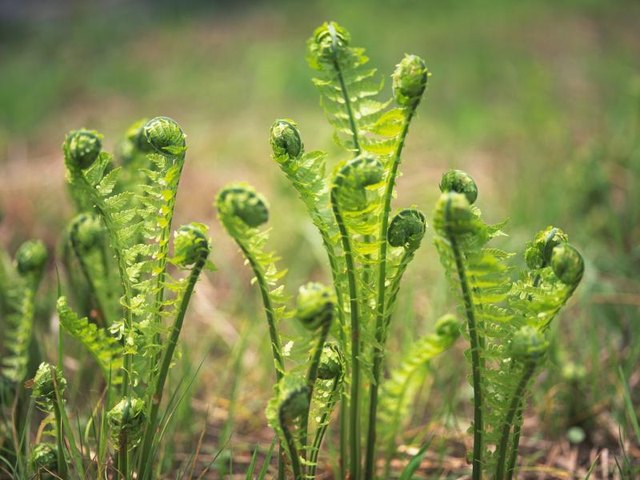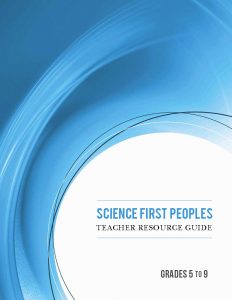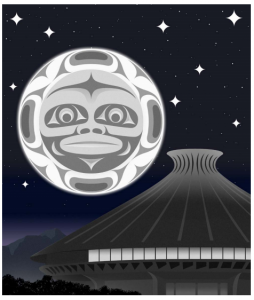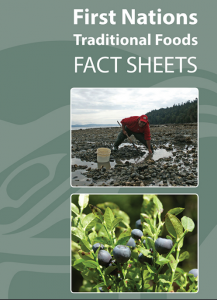Natural Science, Ethnobotany, and Food
FNESC Science First Peoples
Though this resource is for grades 5-9, the integration of culture in problem solving and exploring concepts can be adjusted for all grades with blackline masters.
- Traditional Ecosystem knowledge, and reading signs from nature
- Paddle Power: investigating how a paddle moves a canoe, force and lever, with a canoe cutout!
- Bears and body systems
- Climate change
- Traditional knowledge on Earthquakes and flooding
EXPLORING THE GREAT BEAR SEA CURRICULUM
The Exploring the Great Bear Sea Elementary, Secondary and Post-Secondary Curriculum Resources are based on the film The Great Bear Sea: Reflecting on the Past, Planning for the Future by Green Fire Productions, and can be used to engage students in an inquiry-based, educational journey through the Great Bear Sea exploring a variety of themes such as Indigenous Knowledge, collaborative science, marine planning, biodiversity, sustainable resource management and marine stewardship. Students explore the importance of this region of BC – and our connection to both land and sea – through place-based stories, traditions and histories, bringing a diversity of First Peoples’ perspectives from this region into the classroom.
SCIENCE & SOCIAL STUDIES: Grade 4-7
SOCIAL STUDIES: Grade 11 & 12
ENVIRONMENTAL SCIENCE: Grade 11 & 12
greatbearsea.net/secondary-curriculum/environmental-science/
Coast Salish Moons
Race Rocks and Pearson College
“The Saanich Year provides” images, symbolism, and traditional knowledge on the Coast Salish calendar of 13 moons.
“Today we are part of a world that uses clocks and calendars and “daylight savings time” but we once used a system that was better for us.”
Sky Stories: A First Nations Journey Teacher’s Resources
sponsored by NSERC-Pacific
“Experience the night sky as never before in our Star Theatre through the stories, dances, cultural practices, and traditional beliefs of the First Nations of BC and the Yukon.”
“Cree Mythology Written in the Stars”
CBC Radio, January 17, 2016
“When I talked to the elders they told me, ‘Everybody on our half of the world went outside at night and looked at the stars. Therefore, every culture in our half of the world understood about the sky because they lived under that sky.'”
Wilfred Buck is a science educator who teaches First Nations students about Cree, Lakota and Anishinaabe stories of the constellations. (Jaison Empsom/CBC)
Click image for link
Pacific Northwest Plant Knowledge Cards
developed by Vancouver Island and Coastal Communities Indigenous Food Networks


A beautiful set of cards with photos of local plants on one side, and their first nations’ names, uses, and description on the reverse side.
These could be used for sorting activities, research, students teaching each-other, etc.
Could also be used in conjunction with a guided nature walk (speak to one of the Ab. Ed. Support staff to set this up).
Find in the Learning Commons
First Nation’s Science and Ethnobotany: Shared Learning in Action

Local Plant knowledge, current and historical uses, and First Nation’s names with images and fold-out pages.
In the Learning Commons

Culturally modified cedar
First Nations’ Traditional Food Fact Sheet
Developed by the First Nations Health Authority
This PDF has accessible information on traditional uses and harvesting methods, as well as traditional recipes and nutritional information.
Click image for link
Indigenous Food Systems Network
Explanation of the Medicine Wheel, Land and Food Systems of BC, recipes, and legends around food.
Bannock

Recipe: Bannock
For lots of recipes, background, and history: Bannock Awareness
Plant Knowledge of the Salish Sea Region
Seliliye Belinda Claxton, Tsawout, & Nancy J. Turner, University of Victoria

saanich-plant-knowledge-of-the-salish-sea
Salmon
Powerpoint with importance and history of Salmon for Coast Salish people





